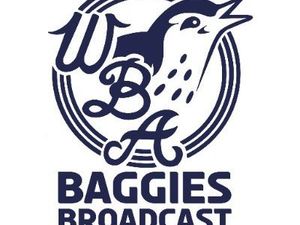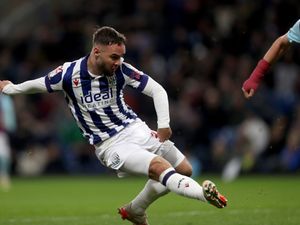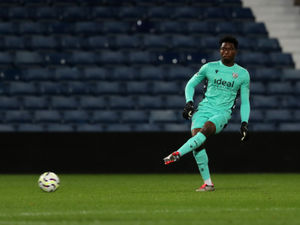Cyrille Regis remembered: The humble beginnings of a stellar career at the top
With the sad news of Cyrille Regis' death, we look back at his humble beginnings, eventually growing into a stellar career.
Early life
Regis was born on February 9, 1958, to Robert and Mathilde Regis in South America – French Guyana, to be exact, an overseas region of France.
His father moved to Britain, with Regis and the rest of his family following a year later. They initially pitched up in the Portobello Road area of London before later moving to Stonebridge.
A talented sportsman, Regis impressed in football, cricket and athletics at Cardinal Hinsley School (Harlesden) and was called up to the Borough of Brent Boys’ football team as well as being offered a trial by Chelsea, which he was unable to take advantage of due to injury.
Non-league football
After not being able to take advantage of his Chelsea trial, Regis trained as an electrician – a trade he continued in until becoming a professional footballer – and played Sunday League football for Ryder Brent Valley and Oxford & Kilburn Boys.
A move to Molesey – a London amateur club – saw Regis begin to bang the goals in on a regular basis in the 1975/76 campaign, and he repeated the feat at Hayes the season after, which is where Albion came into his story for the first time.
Chief scout Ronnie Allen spotted the 19-year-old playing for Hayes in the Isthmian League, but with the Baggies unsure of shelling out a four-figure fee for a player to jump through several divisions to the top flight, Allen offered to pay the money out of his own pocket.
Debuts to remember
Allen, of course, would be proved right after a deal was reached to buy Regis for £5,000 in May 1977, with another £5,000 once he reached 20 appearances.
Laurie Cunningham had joined two months earlier, Brendon Batson would sign soon after – they would become three of the most important figures in the club’s history and christened The Three Degrees thanks to Ron Atkinson.
Allen would remain such a crucial part of Regis’s emergence as he took over from Johnny Giles as manager and handed the striker his first-team debut in a League Cup tie on August 31, 1977.
It could hardly have gone better for Regis as he scored twice in a 4-0 win over Rotherham United.
Three days later, he was up and running in the league, joining Bryan Robson on the scoresheet in a 2-1 victory over Middlesbrough.
After that, Regis was flying and he immediately became something of a regular, ending that first campaign with 10 goals in 34 league appearances as Albion finished sixth in the First Division, with Atkinson having replaced Allen in January 1978.
He also took a liking to the FA Cup, netting on his debut in that too before going on to finish with six goals in six ties before a semi-final exit against Ipswich Town at Highbury.
The Three Degrees
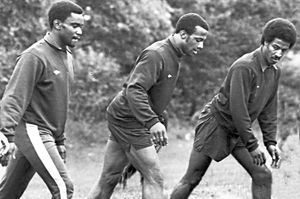
The 1978/79 campaign would prove to be the most memorable at The Hawthorns in many a year, with The Three Degrees pushing the club to the forefront.
They finished third in the First Division, their highest position for more than two decades, and reached the quarter-finals of the Uefa Cup.
Regis netted in Europe at Turkish side Galatasaray and Portuguese outfit Braga (twice) and scored again at The Hawthorns against Red Star Belgrade. However, a 1-0 loss in front of 95,300 in Belgrade meant Albion would exit at the last eight stage.
Thirteen goals in 39 league appearances would also help Regis be voted PFA Young Footballer of the Year.
The Three Degrees were broken up ahead of the 1979/80 campaign with Cunningham sold to Real Madrid for just shy of £1million.
With Regis sidelined in the early part of the campaign, he would only net eight league goals that season. Albion would finish 10th and exit the cups early, including a second successive campaign in the Uefa Cup, where German side Carl Zeiss Jena saw them off at the first hurdle.
Return to Europe
Fortunes would improve again in the 1980/81 season as Regis bagged 14 times in 38 league matches, lifting the Baggies to fourth and a return to the Uefa Cup.
Grasshoppers beat them in the first round in 1981/82, but Regis was at his prolific best that campaign.
His tally of 17 goals in 37 league matches that campaign was his best at Albion and he finished second in the Footballer of the Year vote behind Tottenham’s Steve Perryman
He also won the first of five England caps in a 4-0 win over Northern Ireland at Wembley, becoming the third black player to be capped by England after Viv Anderson and Cunningham.
The Baggies would also reach the semi-finals of the FA Cup and League Cup that season, losing to QPR and Tottenham, respectively.
That would see Regis leave The Hawthorns in 1984 with 112 goals in 302 games, but without a major honour to his name that his time in blue and white deserved.
A Cup winner at last
Eight seasons with the Baggies would be followed by seven seasons down the road at Coventry City.
Although he often battled relegation with the Sky Blues, he would finally be able to take home a winner’s medal when Coventry lifted the FA Cup in 1987.
Following three semi-final defeats with Albion – two in the FA Cup one in the League Cup – Regis finally got into a major final, beating Leeds United 3-2 after extra-time at Hillsborough in April 1987.
A month later, the same scoreline would win Coventry the Cup thanks to Gary Mabbutt’s extra-time own goal.
Regis had his trophy at last.
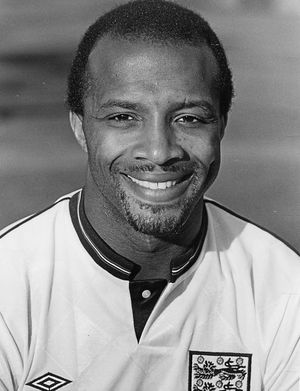
Big Ron calls again
The death of Cunningham in a car crash in 1989 would seriously affect Regis and he became a Christian.
Things also changed again on the pitch soon after.
Having netted 47 goals in 238 games for Coventry, Regis was reunited with Atkinson at Villa in 1991 – becoming Big Ron’s first signing at Villa Park.
Another debut meant another goal as he scored in a 3-2 success over Sheffield Wednesday, and he would go on to 11 times that season as Villa finished seventh in the final season of the old First Division and reached the sixth round of the FA Cup.
However, his minutes were limited the following season – particularly following the £2.3million arrival of Dean Saunders – and his only goal of the campaign would arrive in a 2-1 victory over Nottingham Forest in December 1992.
He wasn’t finished in the West Midlands yet though...
Crossing the divide
Not many footballers are fondly remembered in all corners of the West Midlands, but Regis managed just that after a brief stint at Wolves in the 1993/94 season.
That speaks as much for the man he was as anything else.
With his career winding down, he netted just twice for the men in old gold and black, both of them in winning efforts in Division One – against Peterborough United and Birmingham City.
He dropped through the divisions playing for Wycombe Wanderers in Division Two and Chester City in Division Three before finally calling time in 1996.
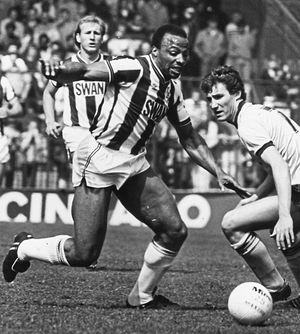
Life after football
Many honours were bestowed on Regis after he decided to hang his boots up, consistently being named in greatest player polls for Albion and Coventry.
He was also awarded an honorary fellowship by the University of Wolverhampton in 2001 before becoming a Member of the Order of the British Empire (MBE) in 2008.
As well as working in a range of coaching roles, he became an accredited football agent – including for his nephew Jason Roberts – and continued charity work with wife Julia, including for WaterAid in Ethiopia.
His legacy continues to inspire footballers of all races today.


